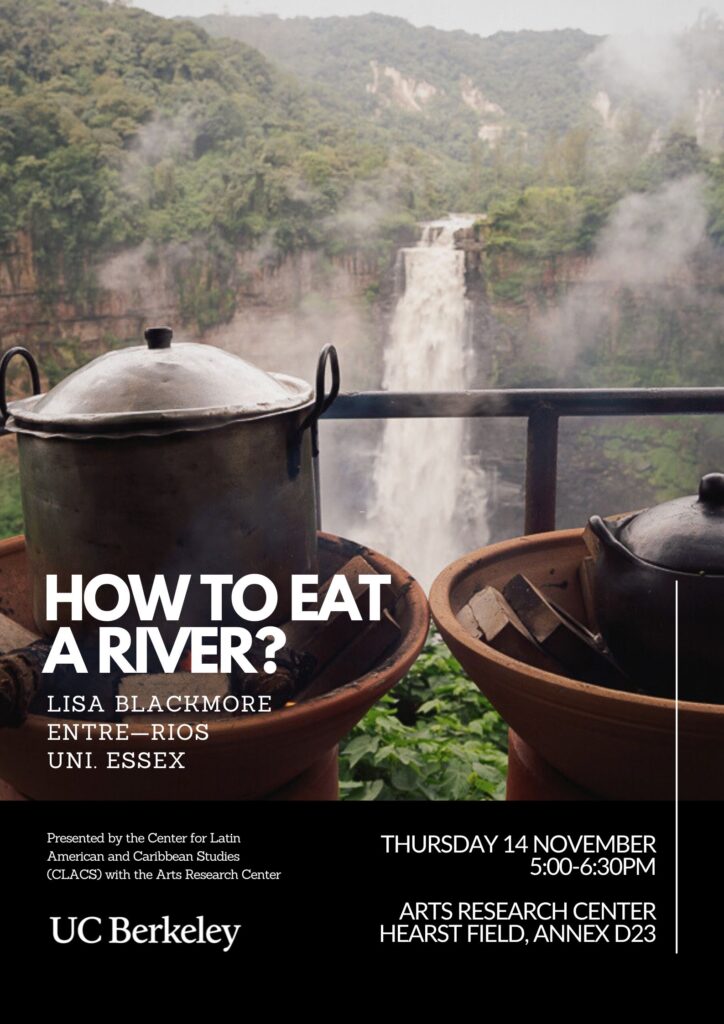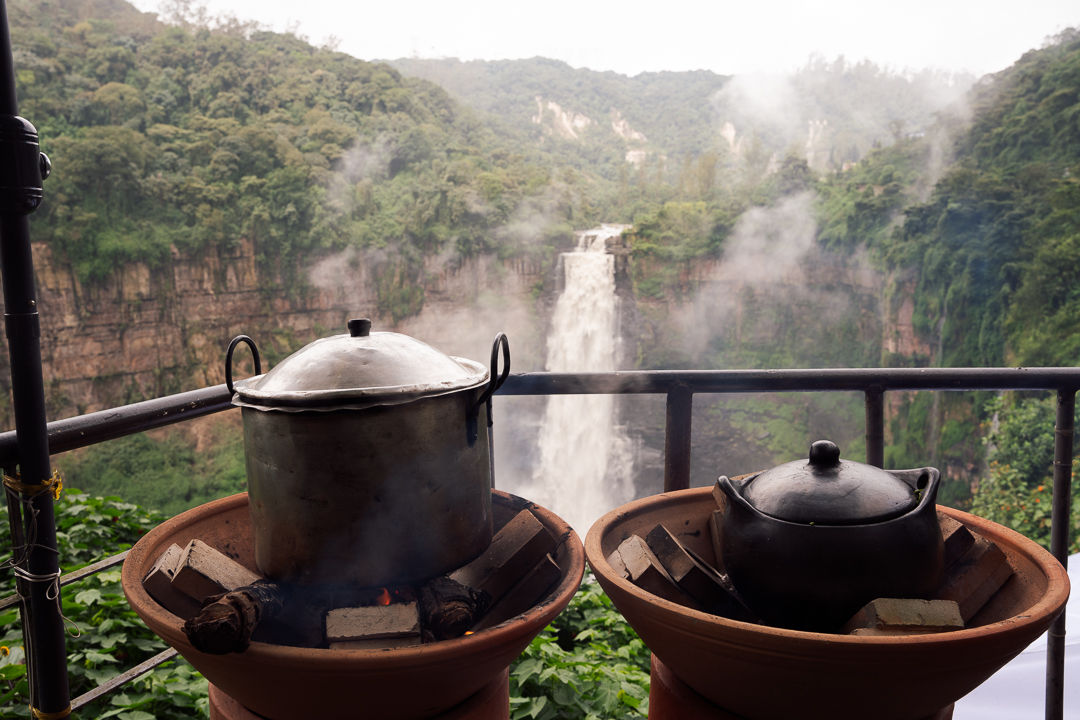
When we eat, we are always eating landscapes. Water and chemicals flow into food, then into the microbes dining in our intestines, connecting us metabolically to ecosystems where food production takes place. This talk will reflect on food as a medium to cultivate awareness of hydrosocial interdependence and stimulate more equitable modes of coexistence, care, and multispecies community. I will focus on our project Piquete del Río Bogotá, a communal lunch organized as the entre—ríos collective in 2023 that gathered river caretakers at the iconic Tequendama Falls to share a meal of organic produce grown in one of Colombia’s most polluted watersheds. I’ll consider how commensality might galvanize coalitionary energies in water stressed territories by connecting members of Indigenous Mhuysca councils, ecological restoration projects, organic food production, nature tourism, environmental education and heritage initiatives. Sharing inspiring stories of these river guardians’ everyday practices of care, conservation and food sovereignty, the talk also uplifts their work as part of the hydrocommons cultures emerging throughout the Americas to transform ways of relating to and through water.
Thanks to Natalia Brizuela for the invitation!
Thursday Nov 14, 2024
5:00 – 6:30pm
Location: Arts Research Center, Hearst Field Annex D23
This Talk is part of the Center for Latin American and Caribbean Studies (CLACS) cycle:
New Vocabularies, New Grammars: Imagining Other Worlds
This academic year programming will focus on critics and intellectuals who, in their forms of writing and thinking, undo the divisions and separations between disciplines and genres, and between political action and intellectual engagement. In this practice of border/crossing, new languages and grammars can be imagined to signify other worlds to resist and oppose the imposed violence of colonial epistemes. These scholars, critics, and political actors offer a dynamism of the indeterminacy, inviting practices that bring together words and worlds. Each visit will have two components, a lecture and, the following day, a seminar led by the guest speaker with readings material available by those who sign up.
